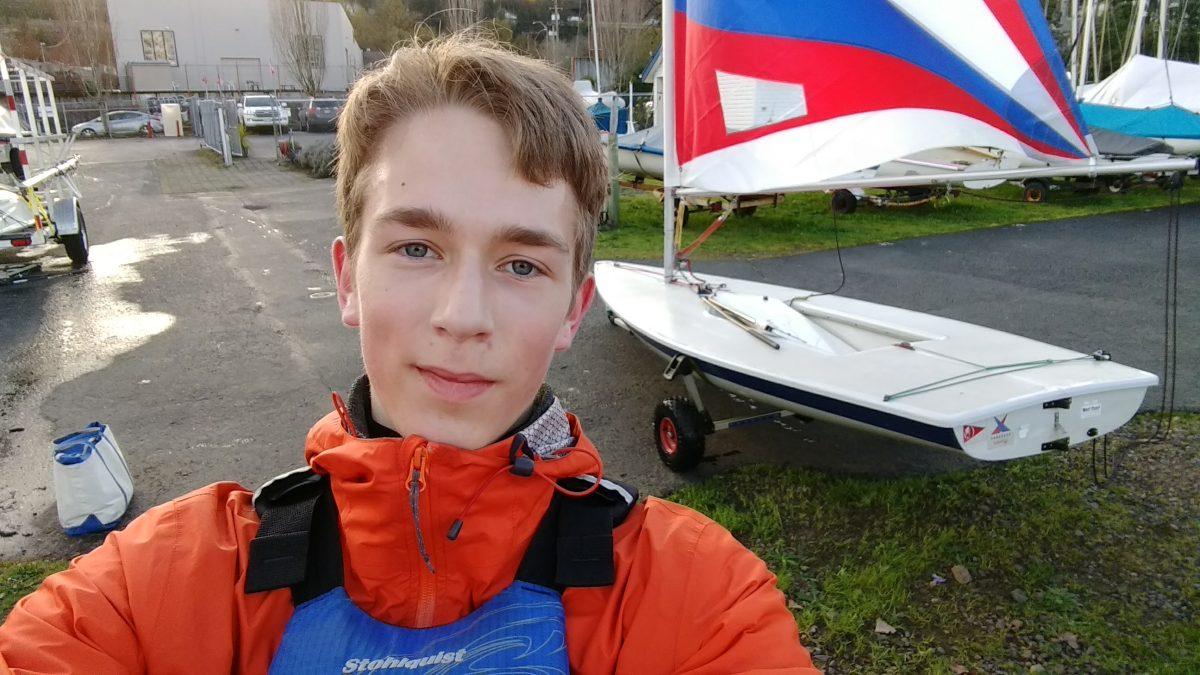
Pierre Carr (12) has been racing on the waves as part of the Willamette Sailing Club (WSC) since the summer before his freshman year. Sailing, a somewhat eccentric sport, was brought to his attention by his dad after taking a class at WSC. Looking for alternatives to a contact sport, Carr went to sailing orientation and liked it. His sailing team is made up entirely of athletes from Portland area high schools. A team consists of six people and Carr is part of a mixed school team. “In sailing races, you get points based on how you finish, so first place gets one point, second place gets two points, and then whichever team, or boat, has the least amount of points wins the entire regatta,” Carr explains. The WSC provides boats for the use of the teams. “It’s a fleet of twelve 420’s, which refers to the length of the boat. Club 420’s are 4.2 meters and there’s also a couple FJ’s which are a little more skinny,” says Carr. “The boats we sail are two-person boats: one person that drives, and one person that controls the front sail.”
Besides sailing, Carr is very interested in computers and has self-taught himself coding. “I originally was interested in game development but it’s kind of progressed more to artificial intelligence.” He is currently taking three AP classes: Calculus, Physics 2, and Psychology. In regard to staying on top of schoolwork he states: “When sailing is in season, it is kind of hard. There are lots of late nights, [but] there is a lot of time during regattas to do work, so there are ways to get around it.” Fortunately the schedule for practicing is flexible. Practices are three times a week, but there is only a minimum requirement of attending two practices.
With many challenges such as capsizing, the outcome of races relies heavily on the quick thinking and decision-making of the sailors. “If the wind is really heavy, you get about one capsize per regatta and it can really change a race. There was one time, we overestimated our capability to flatten the boat, and we ended up capsizing and swamping the boat,” he says. “It was full of water, and so we had to spend like half the race bailing water out of the boat.”
When recounting a memory from a past regatta, Carr recalls, “It’s hard to get into this without using sailing jargon, but in the last ten seconds getting ready for the start, the wind shifted to my side. I had a very big advantage and I tacked over, and I basically got a two boat length lead.” Carr adds that though the wind is not always on your side, it sometimes is.
Whether it be sailing on the Willamette or diving into research on computer intelligence, Carr is passionate about what he loves to do. As a senior at Franklin, he can only hope that the sailing legacy will continue on and more people get involved in this unique and thrilling sport.


































